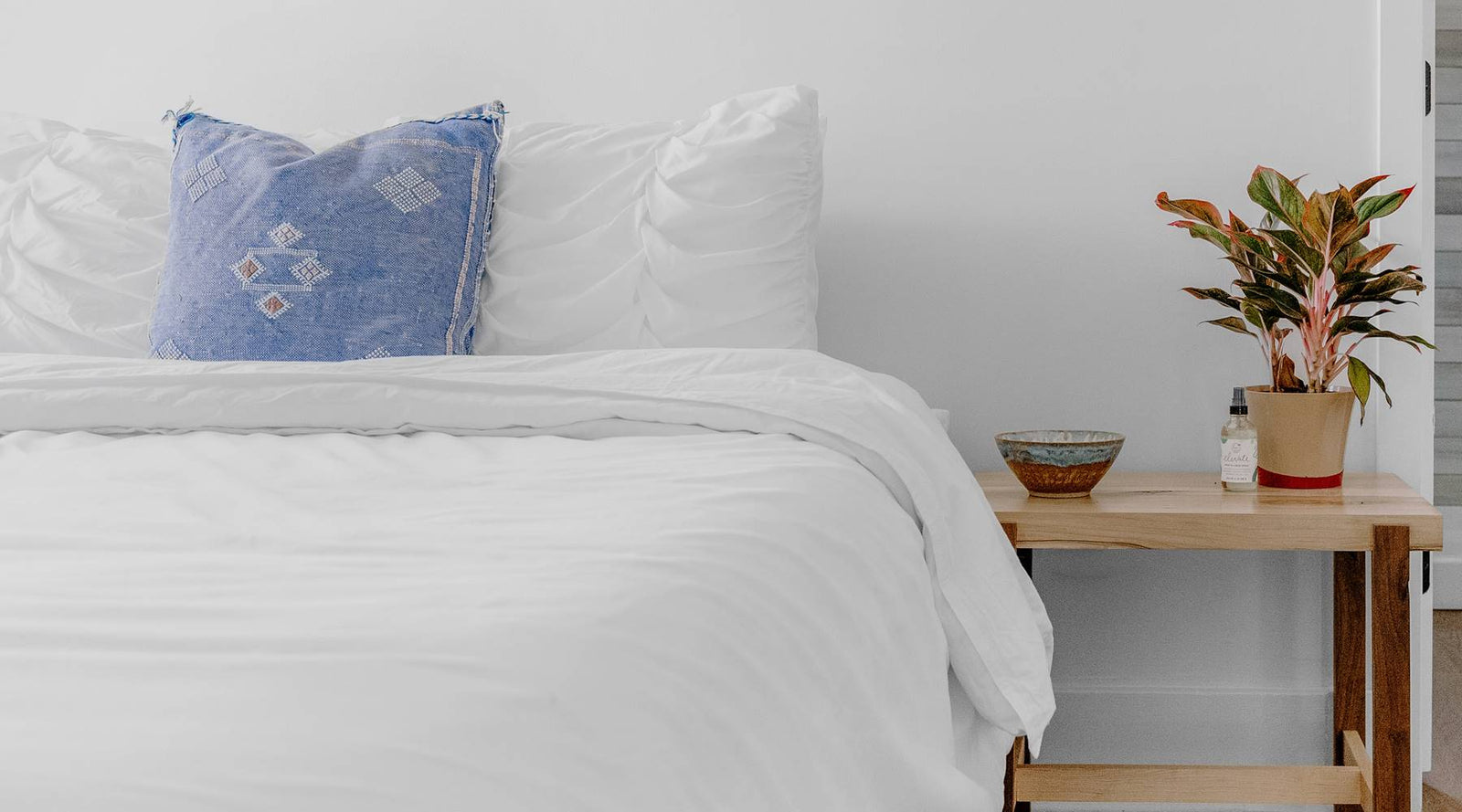
Are mattresses really toxic?
May 25, 2022 4 min read
There's a lot of talk these days about the toxicity of mattresses. But are they really that bad for you? There have been some concerns raised about the safety of mattresses, particularly those that contain chemical flame retardants or other synthetic materials.
There is no definitive answer to this question. Some experts believe that mattresses can be toxic if they contain certain chemicals or other synthetic materials. Others believe that mattresses are safe as long as they are made with natural materials.
The truth is that there is no easy answer. Mattresses can be made with a variety of different materials, and each type has its own advantages and disadvantages. Some people may be more sensitive to certain materials than others. When it comes to mattresses, there is no one-size-fits-all solution. But by doing your research and knowing what to look for, you can find a mattress that is safe and healthy for you and your family.
It is important to do your own research to decide what type of mattress is right for you. If you are concerned about the safety of your mattress, you may want to consider an organic mattress. These mattresses are made with organic materials that are less likely to cause health problems.
So, what can you do to protect yourself from these potentially harmful chemicals? Most mattresses are made of synthetic materials like polyurethane foam and polyester fiber so look for a mattress that is made of organic materials like certified organic latex, organic wool, and organic cotton. These materials are much less likely to off-gas and are potentially better for your health.
The good news is that there are a number of organic mattress companies that have sprung up in recent years. These companies use natural materials like wool and cotton that are fire resistant and don’t require the use of potentially toxic chemicals. They also offer adjustable layers so you don’t have to worry about potentially harmful glues.
In today's world, we are constantly bombarded with chemicals. They are in the food we eat, the water we drink, and the air we breathe. So it's no surprise that our homes are full of them, too. Most of us are unaware of the potential health hazards posed by these chemicals. But the truth is, they can be very dangerous. Some of them have been linked to cancer, birth defects, and other serious health problems. But does that matter? Well, it depends on how you look at it. If you're comfortable with a low level of toxins, then you might not be as concerned. If you're worried about the potential health hazards posed by these chemicals, then you might want to consider switching to an organic mattress.
But are they actually dangerous? Are they full of toxic chemicals that could be harming our health? Unfortunately, we don’t really have a clear answer. Mattresses are not regulated in the same way that other household products are, so there’s no easy way to know what chemicals are in them. And because nobody’s really looked at the long-term health effects of sleeping on a mattress, we can’t say for sure whether they’re safe or not. That being said, there are some things we do know about the potential risks of sleeping on a mattress. For one thing, some mattresses are treated with flame retardant chemicals or use fiberglass, which have been linked to cancer, hormone disruption, and other health problems.
At the end of the day, it’s up to you to decide whether you’re comfortable sleeping on a mattress that may or may not be full of toxic chemicals. If you’re worried about the potential risks, there are steps you can take to reduce your exposure. But if you’re not concerned, you can just buy any mattress that is comfortable or keep sleeping soundly on your trusty old mattress.
We all know that old mattresses can be pretty gross. They’re full of dust mites, dead skin cells, and other things that we’d rather not think about. And because mattresses are so full of dust mites and other allergens, they can be a major trigger for asthma and other respiratory problems. So should you be worried about your old mattress? It’s hard to say. If you’re concerned about the potential risks, you may want to consider using a mattress protector or an allergen-proof mattress cover. You can also try vacuuming your mattress regularly and using a HEPA filter to remove dust mites and other allergens.
We all have different comfort levels when it comes to the toxins in our homes. Some of us are more sensitive to them, while others couldn't care less. But when it comes to our mattresses, we all want to know: are they particularly toxic compared to other household items? Unfortunately, we don't have a clear answer for you. Mattresses can off-gas chemicals and other volatile organic compounds (VOCs), which can be harmful to your health. But so can new kitchen cabinets, vinyl flooring, bedroom furniture, carpets, and paint. In fact, pretty much any new product in your home is going to off-gas some toxins. So what's the best way to protect yourself from these toxins? If you're sensitive to them, you might want to consider using an air purifier in your bedroom. And when it comes time to buy a new mattress, do your research and look for one made with natural, nontoxic materials. You spend about a third of your life on your mattress, so it’s important to make sure it’s the right one for you. At the end of the day, it's up to you to decide how much potential toxicity you're comfortable with in your home. But we hope this article has given you some food for thought.
Subscribe
Sign up to get the latest on sales, new releases and more …
